|
"I literally felt torn in two pieces. I didn't want to leave one baby to go back to the hospital, but I couldn’t stay away from the baby still fighting in the NICU." 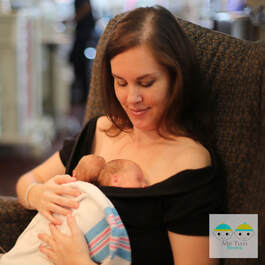 There are many things about the NICU that no one tells you. And when multiples are involved the unknowns double. From the moment my twins were born at 28 weeks and admitted to the NICU, my first thought in the morning and my last thought at night was when will they come home. But during the 55 days that my twins shared the NICU, it had never occurred to me, nor had I ever been told that they might not go home together. But that is exactly what happened. One of my twins was ready to be released, and the other was not. It would take another ten days before they would be reunited again. Those days were the hardest part of the whole NICU experience. I literally felt torn in two pieces. I didn't want to leave one baby to go back to the hospital, but I couldn’t stay away from the baby still fighting in the NICU. Finding a balance was impossible, which led me to feel so guilty. Dealing with multiple discharge dates for your NICU babies will be difficult, but here are a few things that could help. It is Common
It is common that multiples will have differing NICU stays in terms of treatment and length. Understanding and preparing for this from the beginning helps. Consider Childcare Have a plan in place for childcare. Once a baby is released from the NICU, they are not allowed back as a visitor. Future hospital visits will have to be made alone. Make sure you have someone in mind that can watch your baby at home that is comfortable providing the level of care that a medically fragile baby could need. Continue to Bond You may feel that you are less bonded, or are losing your bond with your hospitalized baby because you are not spending as much time with them as before. But the parental bond is based in quality not quantity. When you are able, continue all those bonding activities like kangaroo care, reading, and talking to them. And if you can't make it to the hospital everyday, remember that bonding can still take place via technologies like FaceTime and Zoom. Get Support Having one baby home from the hospital will likely cause a flood of emotions, from happiness to guilt. It is important to seek help and support from your friends, family, partner, and professionals during this time. When a preemie is born, so is a parent advocate. ~Ali Dunn, Me Two Books Having a preemie can make you feel helpless. The role you envisioned as a caretaker and parent, is not what you are experiencing. After my twins were born at 28 weeks, I wanted to do everything I could to help them get better. But I didn’t know how. I soon found my voice and learned that it was a very powerful tool. Here are a few ways you can use your voice as a preemie parent. To Advocate When a preemie is born, so is a parent advocate. Parents serve an important role on the care team. While it can be difficult at times, it is so important to advocate for your baby and share your thoughts and concerns. To Bond
Babies can recognize their mother’s voice at 22 weeks gestation. Hearing a familiar voice promotes attachment, produces a calming effect, and can counteract all the background noise from alarms and equipment. Talk or sing to your babies to help build a strong bond. To Relieve Pain New and continued research suggest that maternal speech decreases pain scores and increases oxytocin levels in preterm infants during painful procedures. Your voice can be a simple way to help your baby experience less pain. While it may not always feel this way, your voice is very powerful and can be used in many ways to help your premature baby. Be empowered! How do you use your voice? A well-prepared NICU family with a strong support system has a better chance of experiencing good health outcomes, and that’s what inspires me. ~Hollis Wakefield, The NICU Doula I am excited to share my interview with Hollis Wakefield. The work she is doing is amazing and much needed! Make sure to connect and support on Facebook and Instagram. ~ Ali Tell us your story and why you started The NICU Doula. After my daughter’s birth, I had left an unfulfilling career in graphic design to be with her full time, first in the NICU and then as a stay-at-home mom. Having been so open about our NICU experience, families with a NICU experience were reaching out to me often for guidance. It was so meaningful to use our experience to help others, and one day, it dawned on me that I could make a career out of serving NICU families as a doula and training other doulas how to serve NICU families well. What kind of impact do you hope that The NICU Doula can have? For now, I’m reducing anxiety and improving outcomes for individual families I serve, but soon through our training program, we will be able to serve an infinite number of NICU families by leveling up the industry’s competency with premature and medically complex newborns. What inspires you to keep helping families dealing with prematurity? A well-prepared NICU family with a strong support system has a better chance of experiencing good health outcomes, and that’s what inspires me. Continuing education is also important to me and keeps me motivated. In February I’ll be taking a course to be certified as a “Kangaroula” - a doula who specializes in caring for NICU baby, as well as the birthing parent. For me, staying on top of the latest research is key to improving outcomes and staying inspired. How can someone help support your organization? If you know a family that needs support specializing in families with a NICU experience, please consider connecting us. We also accept donations which help us offset the cost of care for families without the means to pay. Our rates are determined using a sliding scale (all the way to $0) based on income and risk factors, because all NICU families, regardless of income, deserve this care. I also offer virtual care for those who may not be in the Dallas area. Hollis is a postpartum doula providing trauma-informed, evidence-based doula services to support families of all kinds through hospitalization/bed rest, life in the NICU and the transition home. She is equally passionate about working with LGBTQIA+ folx throughout their pregnancies and postpartum. In her work as a doula, Hollis draws upon her own experience navigating a 97-day NICU stay as a cis queer person with a non-binary spouse. In addition to helping parents advocate in various medical situations, Hollis offers extensive knowledge about exclusive pumping, cloth diapering, vegan and plant-based eating, and resilience during and after the NICU.
Originally published at handtohold.com But if the question you were really asking all along was if you were going to be able to make it through, the answer is an easy yes! I had changed many diapers before, but the first time I changed my own baby’s diaper was different. I needed a nurse to show me the process. With my hands inside an incubator, I had to work around wires and tubes. Everything was miniature, and I really had to concentrate to ensure I completed all the steps in the right order. I looked up at the nurse with a nervous smile and asked, “Does this get easier?”
It was Christmas Day, and I was sad to be at the NICU instead of spending my babies’ first Christmas at home with family. After a long scrub of my hands, I entered the NICU to hear today was bottle day. I was going to get to feed my baby a bottle for the first time. The nurse showed me how to hold my baby in an upright position, not in my arms like I had imagined. It felt awkward, and unnatural to me. The actual feeding didn’t go much better. There was sputtering and crying, and several minutes in I was sure more milk had been spilled than drank. I looked up at the nurse with a nervous smile and asked, “Does this get easier?” But I wasn’t really asking about simplicity. A life with twins, preemie twins at that, was not going to be straightforward and uncomplicated. I already knew that. The question of “does this get easier,” isn’t a question of ease... it’s a question of hope. From the moment my twins were born at 28 weeks and admitted to the NICU, my first thought in the morning and my last thought at night was when will they come home. The whole experience was so hard, that I just wanted it all to be over. I viewed discharge day as the end. I naively thought that once my babies were home, this whole “preemie thing” would be finished and things would get much easier. I think every NICU parent wants someone to tell them that everything will be fine. That once your baby is discharged from the hospital all the stress will dissipate and life will be just as it was before. That is certainly what I was hoping to hear. But no one can really answer that question for you. Life with a preemie is all about getting comfortable with the unknown. However, here are a few questions that I can answer... “Will I always feel this fear?” No, that immediate life and death fear will subside over time and be replaced with a fierce determination to protect your child. “Will I be the parent, advocate and caretaker my child deserves?” Yes, you will rise to the challenge. You are everything your child needs you to be, and when you get tired, which you will, you will ask for help. “Will my life ever be the way it was before the NICU?” Nope... you have changed forever, but for the better. Now that I am several years out from the NICU experience, I have a different understanding. I recognize how difficult raising a preemie can be. And for many, the NICU is just the beginning of so many brilliant, but also extremely difficult days. Some of which will be overwhelming and harder that you could have imagined. But I am no longer in search of easy, because that was never really the goal. Finding hope is so much more fulfilling! So if you are still wondering, does raising preemies get easier? Yes...and also no. But if the question you were really asking all along was if you were going to be able to make it through, the answer is an easy yes! If you have had a baby in the NICU for 1 day or 100 days, you understand the stress surrounding this experience. NICU time is often unexpected and traumatic. It’s hard to manage your day-to-day life when your every thought is preoccupied with worries about your fragile child. Taking care of yourself is the last thing on your mind when you have a baby in the NICU. But the old saying is true, if you don’t take care of yourself, you can’t take care of anyone else. While it may be difficult, it is necessary to prioritize yourself. Self-care doesn’t have to be time-consuming or expensive. Here are four simple ways to care for yourself while you have a baby in the NICU.
Take a Break Long days spent in the NICU are both physically and emotionally taxing. Even if you are not able to be there every day, the time you spend at the hospital is very intense. Schedule time in your day to take a break. A walk around another hospital floor or a quick trip outdoors to sit in the fresh air will do wonders for your stress level. Rethink Your Reading Material One of my favorite things to do while my babies were in the NICU was read to them. I found it very relaxing, and a mutually beneficial way to spend our time together. In fact, studies show that reading to babies in the NICU reduces stress and aids in brain development. But just because you are reading to a baby, doesn’t mean you have to read children’s books all the time. Feel free to indulge in the latest best-seller, that both you and your baby can enjoy. Grant Yourself Permission to Take Time Away I always felt guilty spending free time doing something for myself when my babies were in the NICU. I felt that all my free time should be spent at the hospital. But I am here to tell you, I was wrong. Your baby is safe and well taken care of at the hospital. You can take an hour to chat with a friend or grab lunch with your partner. These things take little time, but make a huge difference in your emotional well-being, which in turn benefits your baby. Multi-Task While You Pump Pumping bedside may give you the best breastmilk yields, but sometimes it is nice to escape from the beeps and buzzes of the NICU. If there is an alternative pumping space, use it periodically. You are already doing something wonderful for your baby by pumping in the first place, so why not multi-task and do something for yourself at the same time. Listen to a podcast that you find entertaining or stream a TV show or movie that you enjoy while you pump. While nothing can take the stress of a NICU stay away, taking care of yourself can reduce it. Self-care may seem unnecessary or even indulgent at times, but it is so important. The NICU experience is a roller coaster, but you will be able to survive the ride if you spend a little bit of time on yourself. originally published on grahamsfoundation.com There were 5 or 6 of us huddled on the sidewalk that circles the park. It was 50 degrees and sunny, and we had all decided to meet at the playground as this kind of weather in the middle of January is too good to let pass without some time outside. I had met these other mothers before, but we were all just beginning to learn about each other. No one knew my story, because I hadn’t shared it yet. The conversation turned to childbirth, and I began to feel a little anxious. I tried not to make eye contact with anyone...and then it happened. Someone asked me if I had an epidural when my twins were born. In my mind, I quickly weighed the options. Tell the truth and risk taking the conversation down a depressing road, or tell a lie. These types of questions just make me uneasy. I understand that the person asking them is just trying to include me in the conversation, but I always feel like I’m put in an awkward place. I decide to go for the truth. I responded that I actually had a spinal block because I needed an emergency c-section at 28 weeks. The laughter and chatter of the group paused, someone said I’m sorry and then the topic of conversation changed.
Several days later, I was sitting in the designated parents’ area, waiting to retrieve my kids from their daily activities. A small group of moms were standing around a woman who was clearly very pregnant. She was describing her discomfort and commiserating with the other ladies gathered there. As I approached I heard them comparing end of pregnancy symptoms and I almost turned around and headed the other way. But it was too late and I had already been brought into the conversation. In my head, I was thinking that I would have loved to have made it to the uncomfortable phase of pregnancy. That no physical discomfort can compare to the emotional anguish that having a baby in the NICU brings. But I won’t say anything, not today. It can be very hard to share your story with people that haven’t lived through the NICU. I want to be brave and open up about what my family went through, because I know it helps others. But my experiences are often met with sadness and pity. It can change the mood of a conversation from humorous and fun, to depressing with a simple mention of the NICU. And while that is understandable, that is not how I view the birth of my preemie twins at all. From the outside, it’s often difficult to imagine the beauty and wonder that watching a tiny baby fight for their lives can bring. A journey that has provided me with the invaluable gift of perspective and gratefulness. My story and all NICU stories are the ultimate tales of hope and triumph over adversity. And these stories make a difference to new preemie parents everywhere, who are entering NICUs for the first time. So while it might be difficult to share please remember that the messenger matters, and your story can only be told by you. This article was originally published at www.handtohold.org My preemies’ first “outfit” was not a family heirloom or a super cozy sleeper. It wasn’t even something that I picked out.
The first thing that my babies wore were tiny knitted hats of soft pastel yarn that had to be handmade by a volunteer because their heads were too small to fit store-bought hats. A hat was the only thing my babies could wear for weeks after their birth. Something that I didn’t realize before my twins were born at 28 weeks and admitted to the hospital, was that babies in the NICU do not wear clothes. The sickest and smallest of babies are only in specially designed preemie diapers, the tiniest diapers you can even imagine, that are still too big for some. They don’t need clothing for warmth, as they are in a climate-controlled incubator. The clothing only gets in the way of the leads, wires, and tubes that are necessary to keep these little ones alive. Seeing my bare babies was another reminder of how this wasn’t typical. It was a visual cue that I was not a normal parent, and I couldn’t do the very basic task of dressing my babies. Before our NICU experience, I never thought my babies’ first piece of clothing would be considered a milestone. I had thought about finding a special outfit for leaving the hospital. But I never thought I would be so emotional over a tiny white cotton button-up sleeper until the day I arrived at the NICU and saw my babies in clothing for the first time. When a NICU baby is finally allowed to wear clothes, it is a big deal! It meant that they were getting better, growing, and requiring less medical intervention. It meant that I would be able to change their clothes, and for a brief moment, I would feel like a normal parent. I could momentarily forget about the wires and tubes, the monitors and machines, and just enjoy this nurturing moment with my child. Years later, I still have the tiny preemie clothes that my kids wore in the NICU. I keep thinking that I should donate them, but I just can’t bring myself to do it. They are so much more than sleepers and onesies, they are a symbol of all my family has been through. And it’s not just those preemie clothes that are special to me. Anytime they grow out of a pair of jeans or size up in a new shirt, I’m reminded how far they have come and how much they have accomplished just by being alive. There are certain milestones that every parent dreams about, like the day their child starts walking or says their first word. But if you are the parent of a NICU baby, you quickly learn about a whole new set of milestones that you never even knew existed. Milestones in the NICU are measured in grams and milliliters. So if you are not naturally a person who notices and celebrates the smallest of victories, you soon will become one. A NICU baby has a lot of milestones to conquer well before the first steps are even considered. And while drinking their first bottle or wearing clothes for the first time might not seem like something special, for NICU babies, these accomplishments are sure something to celebrate. While it is impossible to prepare emotionally for having a baby in the NICU, at the very least, you can feel that you have what you need to make it through each day. I never packed an overnight bag for the birth of my babies. At 27 weeks, I was put on unexpected bedrest and spent the next 8 days at the hospital. I was admitted after a routine OB appointment, so I didn’t have time to collect items that would have made my stay more bearable. On the 8th day, my twins were born prematurely and taken to the NICU where they stayed for the next 2 months. During that time, I developed an all-day everyday NICU routine. The hospital that was caring for my babies had a “traditional” NICU that didn’t allow for a private room or space for parents to stay the night. It became a daily task to pack a bag with the things I would need to survive the day at the NICU. Here was what helped me care for myself and my babies during this time.
Loose-Fitting Clothes Life in the NICU was stressful, so I made sure my outfit was not. Comfortable pants that didn’t rub against my c-section scar were a must. I also wore oversized shirts or tops that could be unbuttoned to facilitate kangaroo care and frequent pumping sessions. I always wore freshly laundered clothes to help prevent the spread of germs to the NICU. Journal/ Notebook There is a lot of important information to keep track of in the NICU. I had a small notebook that I used to jot down questions I wanted to ask the health care staff. I also used this book to record my babies’ milestones and accomplishments. There are also several organizations that make journals specifically for the NICU experience that are great to have around. Camera The birth of my twins certainly didn’t go as I had expected, but these were still memories that I wanted to remember. I used my phone to snap photos, and occasionally I would bring my DSLR camera into the NICU as well. I guarantee you will be so happy to have those photos to look back on. Food/ Water As a pumping mama, I needed a constant supply of food and water. I didn’t want to leave the floor to go to the cafeteria, and sugary snacks from the vending machine left me unsatisfied. I packed healthier snack options and lots of water. Toiletries After hours at the hospital, I sometimes felt disheveled. At those times, I really appreciated having a small bag of toiletry items like a comb, toothbrush, and facial wipes. I also always needed chapstick. The hospital air can be extremely drying. Pumping Supplies When I was pumping, I never left the house without my supplies. The hospital provided a pump, but I needed to bring everything else like an insulated bag, a hands-free bra, and my pump parts (valves, flanges, connectors, etc.). I often needed to pump multiple times while at the hospital, so having cleaning wipes formulated especially to clean pump parts were useful. Book/ Entertainment One of the ways I passed the time at the bedside was by reading to my babies. On days when I was unable to hold them, it was nice to be able to strengthen our bond by reading. It also was a nice distraction from the stressors of the NICU. While it is impossible to prepare emotionally for having a baby in the NICU, at the very least, you can feel that you have what you need to make it through each day. And just like those NICU days, at some point, I will look back on those hard moments and be so glad we survived them. Before the emergency birth of my twins at 28 weeks, I had never heard of kangaroo care. But after a stint in the NICU, I will never forget the many benefits of this special therapy.
One of my greatest challenges while dealing with the NICU was time. I had waited so long to be a mother. I just wanted my babies out of the NICU and home with me. It was difficult to go to the hospital day after day, and not know when they were going to be released. And just when I thought the end was near, there would be an issue that would put us back at the beginning. Being so focused on the end goal of going home, made the journey that much harder. I found that Kangaroo Care grounded me and allowed me to focus on the present. I would purposely think about the future, and life after the NICU to escape the moment I was in. That moment in the hospital with my tiny babies was sad, but it was precious too. Just because it was hard, didn’t mean I should miss it altogether. Several years post NICU, and this realization still impacts my parenting philosophy. I try not to wish away any moments with my babies, because nothing lasts forever. And just like those NICU days, at some point, I will look back on those hard moments and be so glad we survived them. This article was originally published at www.grahamsfoundation.org I “attended” a virtual happy hour the other day. It was nice to see people’s faces and have conversations with friends even if they were mostly about isolation and COVID-19. We were all sharing stories from our days, tales of working from home, schooling from home, and trying to create some semblance of normalcy all within the four walls of our houses. As I listened, I began to get a strange sensation…this feeling of déjà vu. I have never experienced a global pandemic before, but all the emotions I am currently experiencing are very familiar. I have felt this type of fear and isolation before…when I had a baby in the NICU. All of the trauma that I thought I had dealt with years ago, is slowly seeping back into my life. If you are a current or former NICU parent, you may also be reliving some of these same fears, concerns, and experiences that were a part of your time in the NICU. And as a result, you may be struggling a little more than the average person. But I would like to remind you (and myself) that while it feels very heavy right now, NICU parents are uniquely qualified to cope with this type of situation because we all have prior experience. So remembering these things might help you to get through these days. This is hard, but you can do hard things. Remember learning that your baby would need to be in the NICU? I don’t think I’ve ever experienced anything harder than that. And it didn’t get any easier as I traveled back and forth from the hospital, pumped, washed and sanitized everything, and worried about my tiny baby. Because I overcame this very hard experience before, I know I can do it again. There is so much uncertainty, but you have felt that before. Do you wake up not knowing what news the day will bring? Will something bad happen that will set back the progress you were hoping to make? It sounds like a typical day in the NICU! I can’t think of a situation with more uncertainty than the NICU roller coaster. Things are going well and it looks like it will all be over soon, and then a setback puts you back at square one. Because I dealt with this previous ambiguity, I know I can do it again. You are staying at home, but you’ve experienced time in isolation. In the first year of my babies’ lives, we stayed home all the time. They were released from the NICU in the middle of RSV season and it was just too risky to take them out in public. So we didn’t. After several months in the NICU, it was not the ideal situation as I was ready to resume life as usual. And I wanted my babies to experience real-life outside of a hospital and my house. But it wasn’t safe, so we just didn’t do it. I actually have many tender memories of that time as we all hunkered down in our little cocoon. Because of this previous time in isolation, I know that I can do it again, and I’m hoping that in a few years I will look back at this time fondly as well. Our current state of affairs feels eerily similar to the NICU experience to me. This brings up a lot of feelings like fear, anxiety, and isolation. If you are also feeling these things, don’t forget to tap into your support network if you need additional help. But I also feel a sense of hope! I learned that from the NICU as well! I made it through once, and I can do it again…and you can too! |

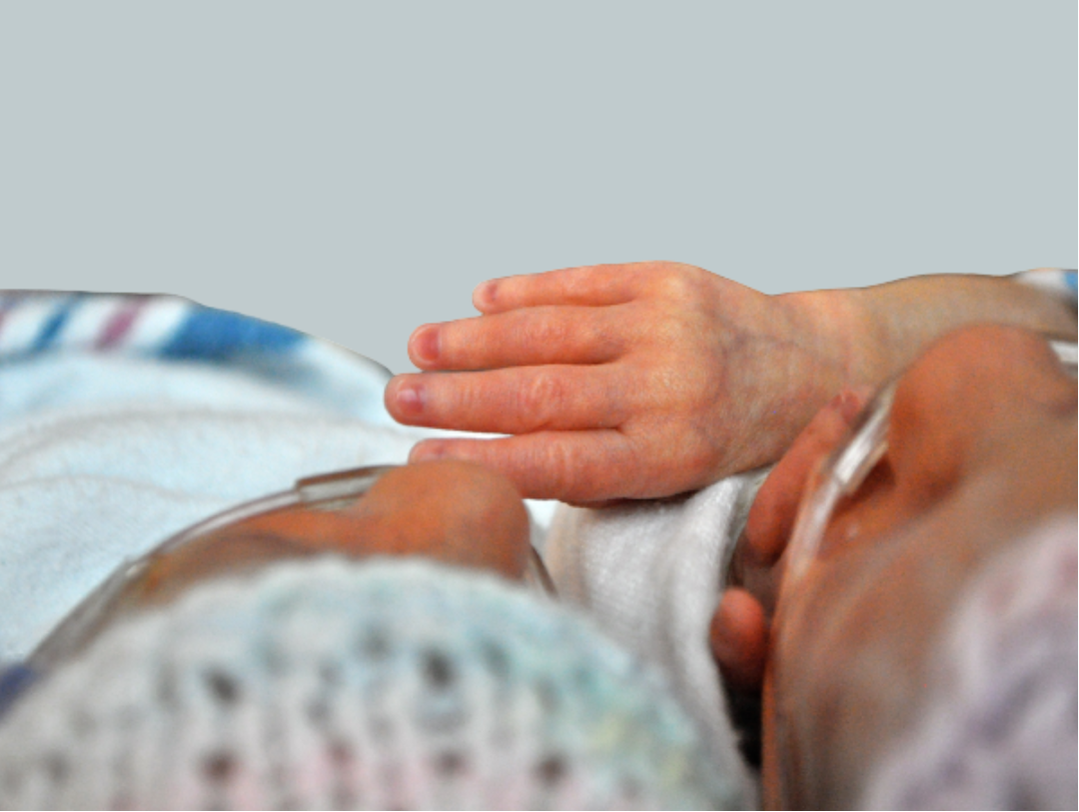
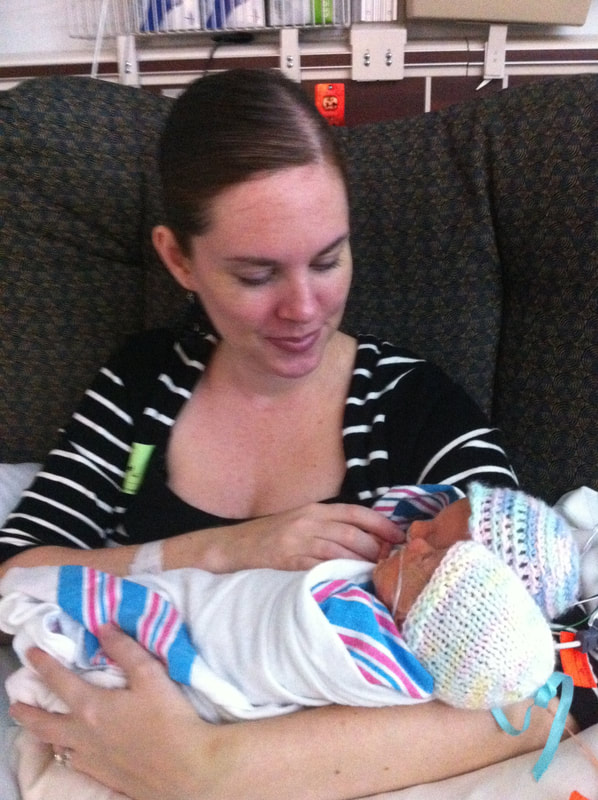
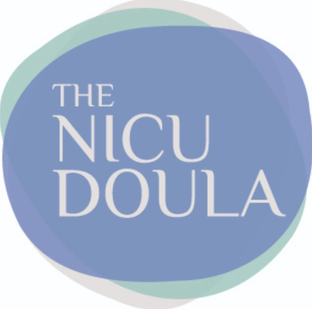
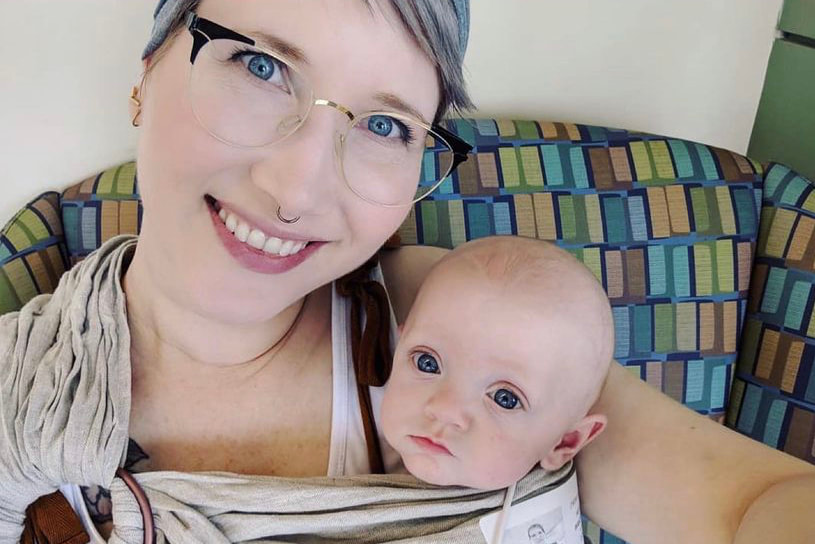
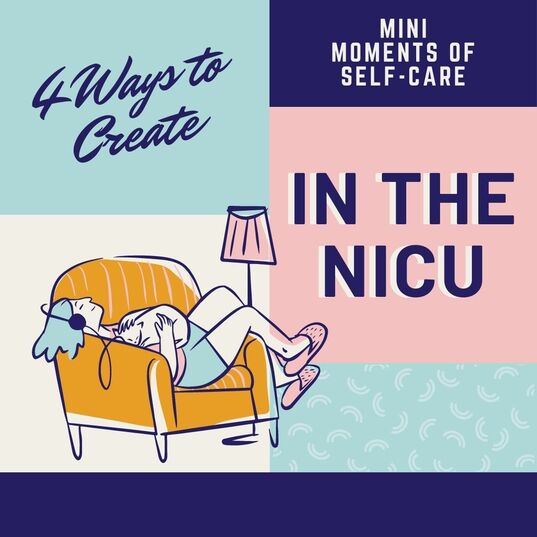
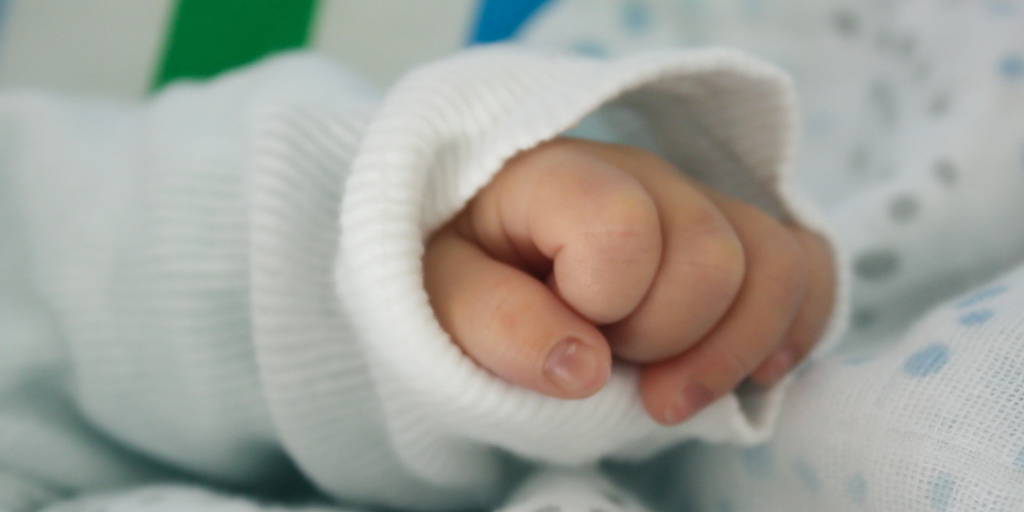
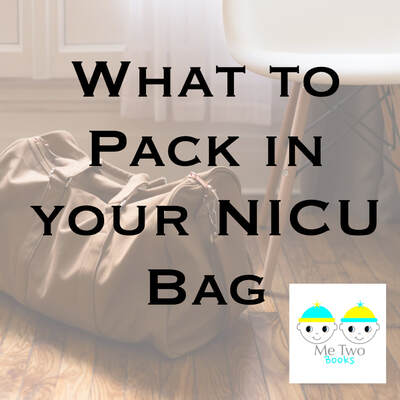
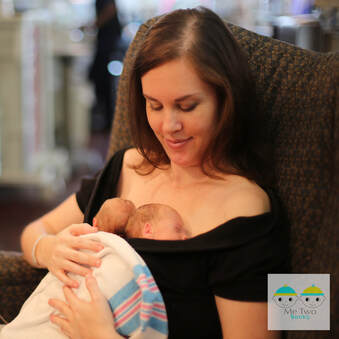
 RSS Feed
RSS Feed